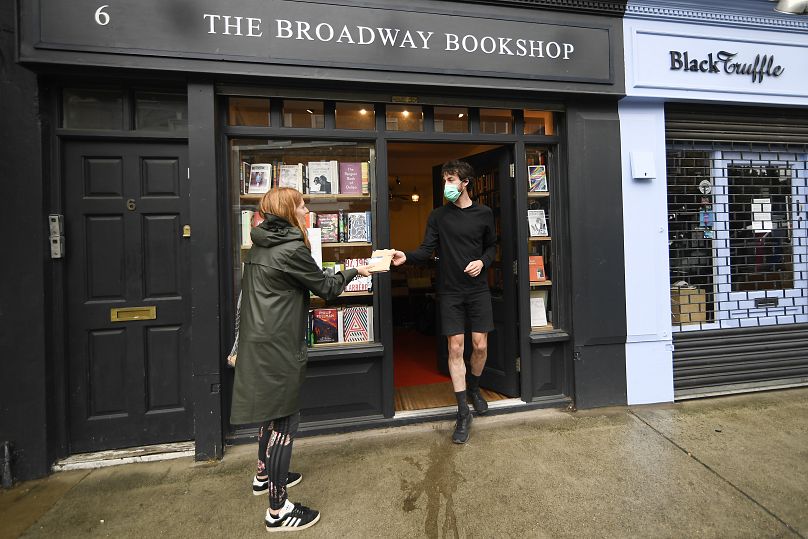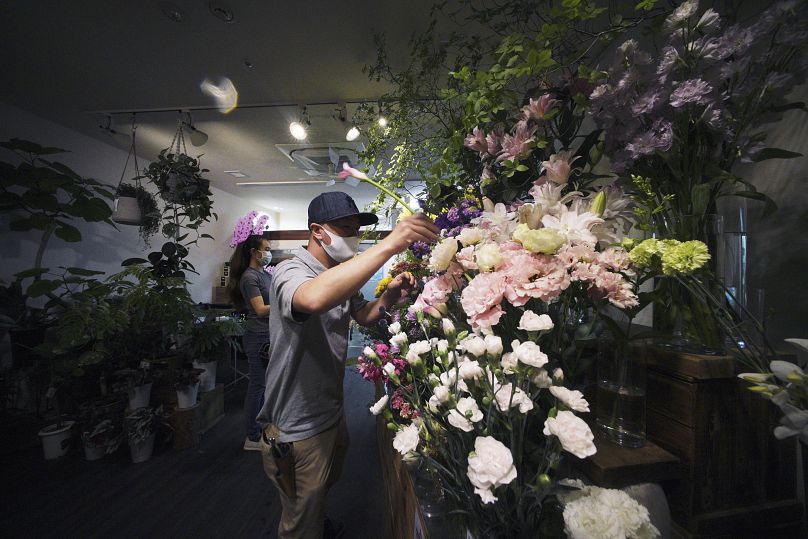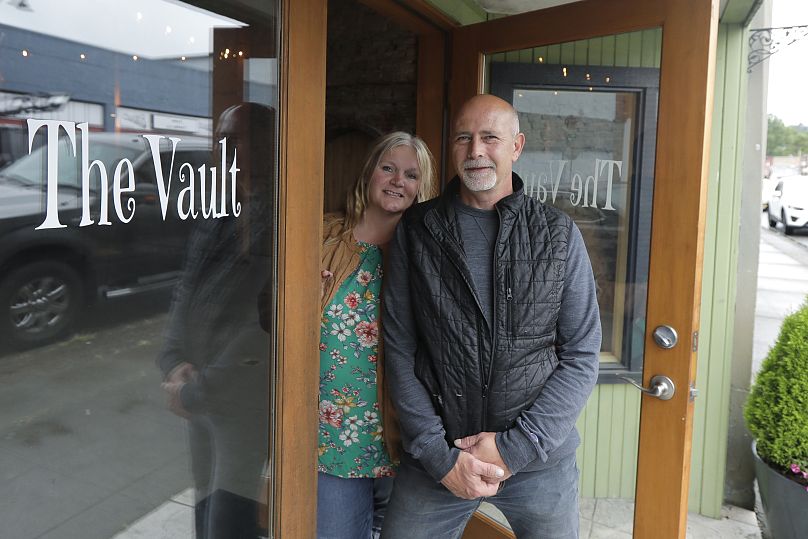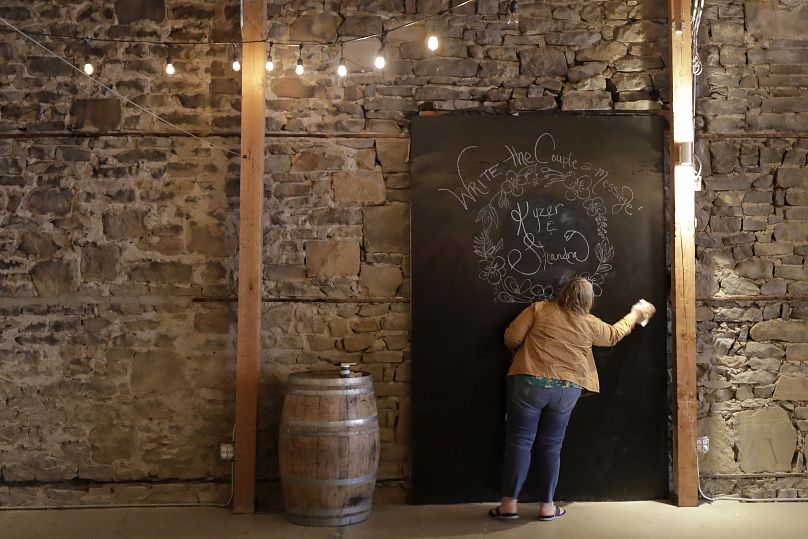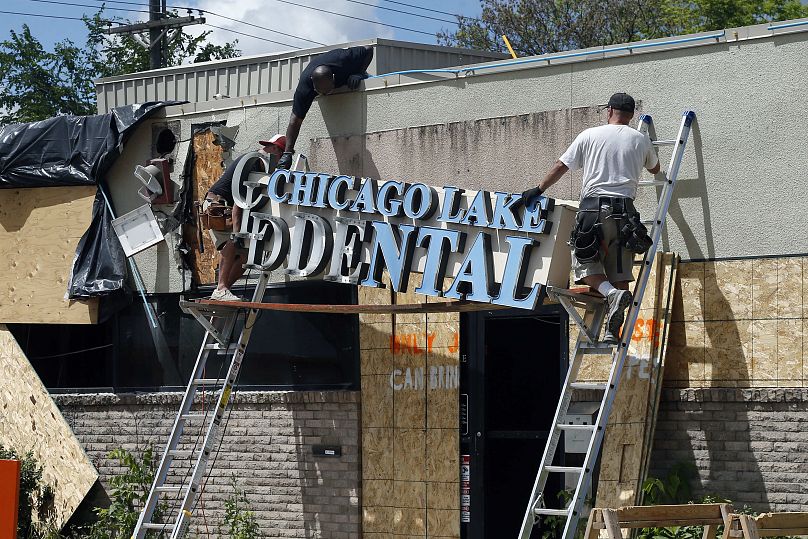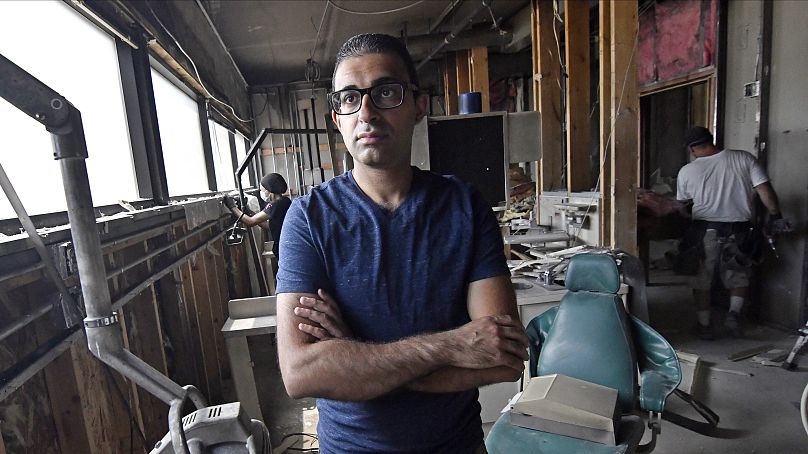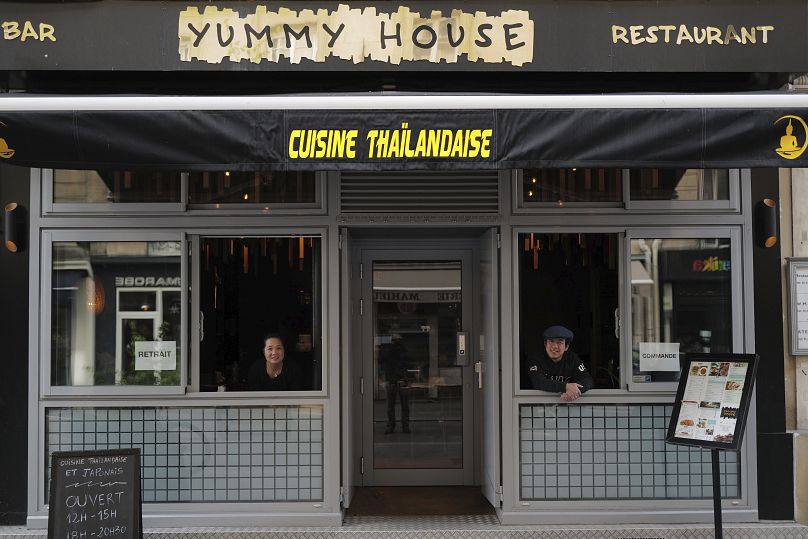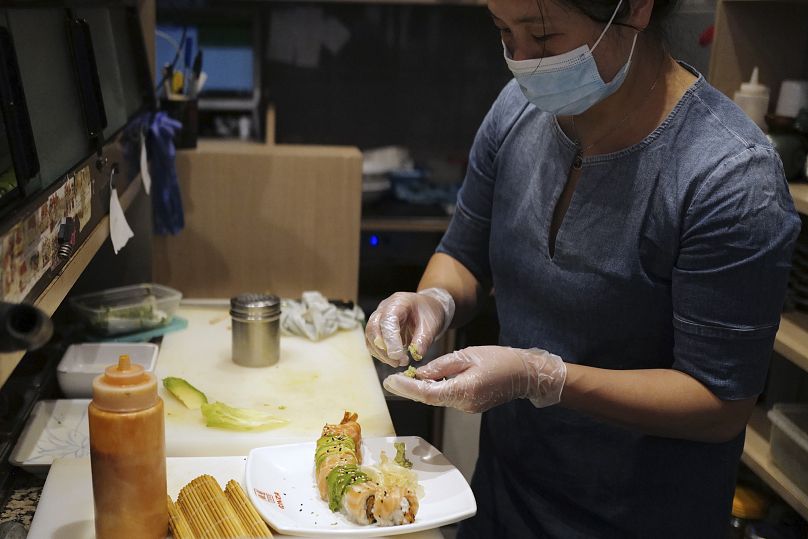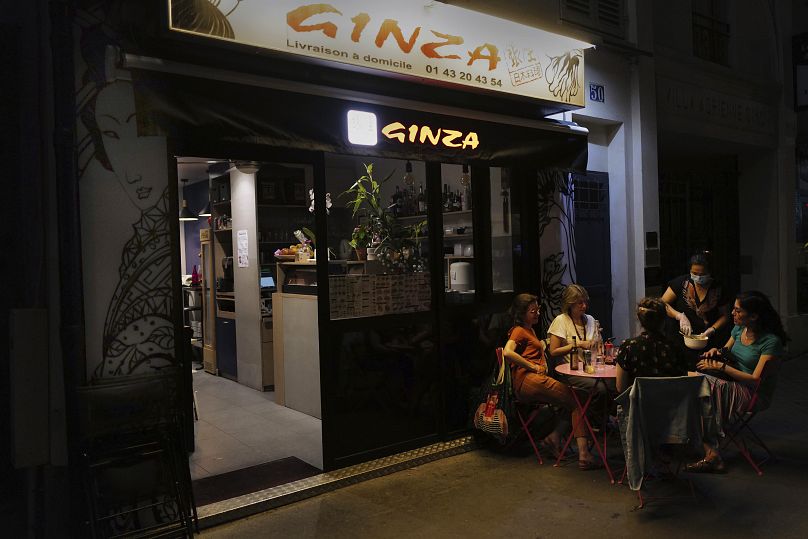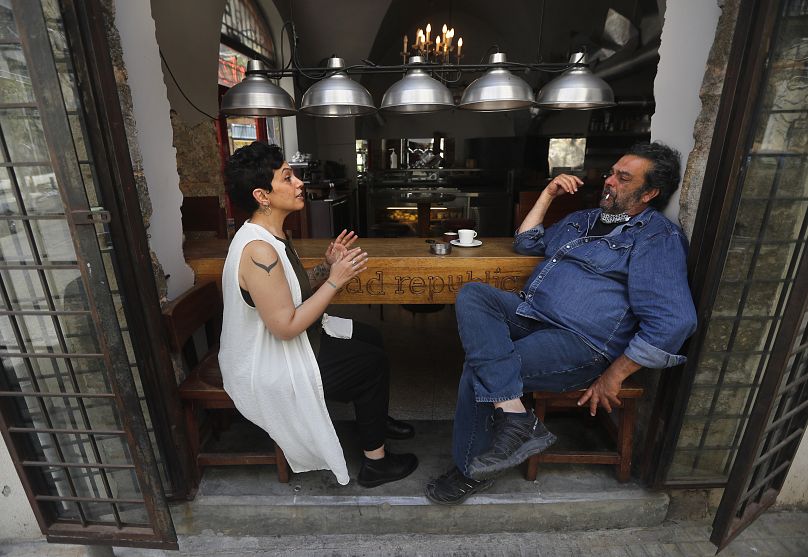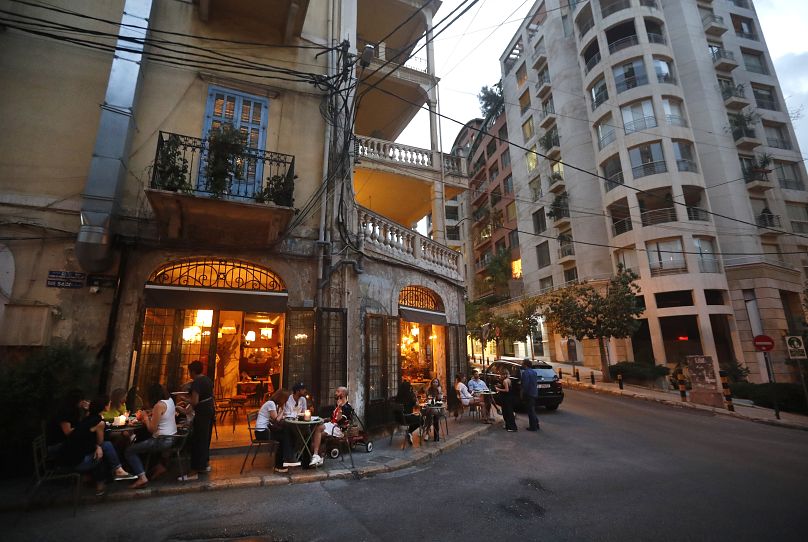Pandemic-related restrictions have hit small businesses all around the world. Forced to live day to day, these entrepreneurs share stories of their fight for survival.
Small businesses around the world are fighting for their survival as the bleak economic impact of the COVID-19 pandemic begins to bite. As well as hitting their own livelihoods, the potential loss of these high street stalwarts risks permanent damage to the fabric of local communities.
So, is the situation becoming Darwinian or have these entrepreneurs been able to adapt to keep afloat?
The Broadway Bookshop, London
Jane Howe has been selling books in her shop in East London for 15 years and never saw the need for a website. Before the pandemic, the customers, drawn by the store's personalised service, were filling The Broadway Bookshop while others queued out the door.
"I love talking to people about what they read and what I read, and swap ideas," Howe said. "I think of it as a dinner table and I lay everything out, these delicious dishes for people to take and try... It's going to be very difficult to replace online," Jane told the Associated Press.
As a result of pandemic-related restrictions on her business, she had to let go of three part-time employees. She tried to negotiate a rent reduction and borrowed £50,000 (€55,000) from the UK government.
In June, the Broadway Bookshop launched its first website where Howe aims to provide the same quality of service and personal approach that made her store so special. Despite her best efforts, the shop took in just around a third of its usual net income in the first week.
In July, the Broadway Bookshop began selling books from the store's doorstep, without letting customers inside.
Howe says she is going to give it her best shot for the next 18 months and see what happens. "I'm hoping we come out of this in a year's time…all I can do is hope we will," she said.
Sun Flower Shop, Tokyo
When Japanese officials asked people to stay at home in March, Shinichiro Hirano reduced the opening hours at his Sun Flower Shop but stayed open.
The blossom-filled store, located in a central Tokyo neighbourhood, quickly lost its business making arrangements for restaurant openings and job promotions. To compound the problem further, the flow of tourists dwindled and the Tokyo Olympics was postponed.
Hirano thankfully didn't lose all his customers during lockdown.
"People were working from home and wanted to cheer themselves up," he said.
Sadly, one of the first bouquets he sold in the days following the easing of lockdown measures was to a customer marking the closing of a nearby restaurant. Other orders came from celebrations of businesses reopening. Total sales of the flower shop, though, have still dropped by up to 20 per cent.
Despite everything, Hirano returns to open the store each day, saying "as long as you have a store, you have to keep it open. I never for a moment thought of closing it."
The Vault, Washington state, USA
With this year's wedding season approaching, 40 celebrations were booked to take place at wedding venue The Vault and its sister facility. Then, the coronavirus pandemic forced Stephanie Skoglund to shut down her business.
"We're basically wiped out," says Skoglund.
Stephanie's husband Rick works for the same business so has also lost his income. The family sold a dance floor and a large party tent to help cover their bills. They applied for help from the state but have never received anything.
Since June, the business has rented out tables, chairs and tents for outdoor events. They plan to host a wedding in late July, one of three events that remain on the Vaults' calendar. The guest list is much smaller than the room's capacity, so social distancing rules should not be an issue.
Stephanie is hoping business will be on the road to recovery by autumn. But the family have talked about selling their home and businesses and starting over if it doesn't.
Of 20 couples who had earlier booked weddings through October, eight rescheduled for next year and a dozen cancelled.
Chicago Lake Dental, Minneapolis
Almost as soon as the pandemic forced Ali Barbarawi to close his Minneapolis dental practice, he began preparing for its future reopening. As experts concluded the risks were high for transmitting infection in dental clinics, Barbarawi connected with his patients online, limiting in-person visits to those with emergencies.
Barbarawi installed plexiglass shields to limit the potential for airborne spread, replaced the office carpet with hard flooring to make it easier to sanitise, and ordered masks, face shields and gowns for staff.
When some easing of restrictions were announced, Barbarawi planned to reopen on June 1, but just days before, protests over the killing of George Floyd by Minneapolis police officers spread through his neighbourhood.
Following the office security camera on his cellphone, Barbarawi watched as people broke into the practice, destroyed his equipment and set the space on fire.
According to him, insurance will cover half of what was lost. On the advice of colleagues, he started a GoFundMe campaign to find the rest of the funding for rebuilding.
Ginza sushi restaurant, Paris
Before lockdown, Shao Lin Tia had been working very hard at Ginza, the pan-Asian restaurant she runs with her husband Christophe Tia. She was filling in for a chef who had left a few months earlier. It was not long before that the couple opened a Thai restaurant next door on Rue Daguerre, a street near Paris' famous catacombs.
With both restaurants closed during lockdown, the Tias had unexpected time to spend with their three children.
France exempted small businesses in the restaurant, tourism, sports and culture sectors from social security contributions and reimbursed employers about 84 per cent of net salaries. Yet, the couple's concerns mounted with no money was coming in and expenses looming.
Since the middle of April, the restaurant has turned to selling takeaway meals a few hours per day. Then, as lockdown measures lifted, Tia placed a few outdoor tables on the street in front of their restaurants. The sales, however, remain 30 per cent lower than at this time last year, despite clement weather and Parisians missing dining out during the lockdown. Many neighbourhood residents left the city for their second homes when the lockdown began and may not return until September.
The family worries that as the French government stops covering salaries in thd coming months, a wave of layoffs could increase pressure on businesses like theirs.
"We'll never catch up, never in our lives. And the hardest is yet to come," Shao Lin said.
Bread Republic, Beirut
After Lebanon's capital Beirut went into lockdown in March, Walid Ataya returned to his bakery, pizzeria and wine room each morning to consider his next moves.
"Over here in Lebanon, we can deal with crises. We have been through wars and turmoil, so the pandemic for us is just another crisis to overcome," he said.
Bakeries were allowed to remain open during the lockdown, so Ataya's started selling fresh pasta and flowers in his bakery.
He negotiated a rent reduction but still had to let go of 10 employes at the end of the country's strict lockdown period.
When the restriction measures were eased in May, Ataya reopened the wine bar and pizzeria at 30 per cent of their capacity. Police have still fined the establishment for overcrowding its outdoor tables. Ataya is contesting the decision in court.
In early June, he was able to reopen his restaurant across the street from the bakery, but masked men broke into his office and carried out a safe with thousands of dollars locked inside.
In recent days, the business seems to be returning to life, as customers fill the tables.
"We are in the stage of surviving day to day now," Ataya says. "You cannot sit and do nothing. You have to take your chances."












